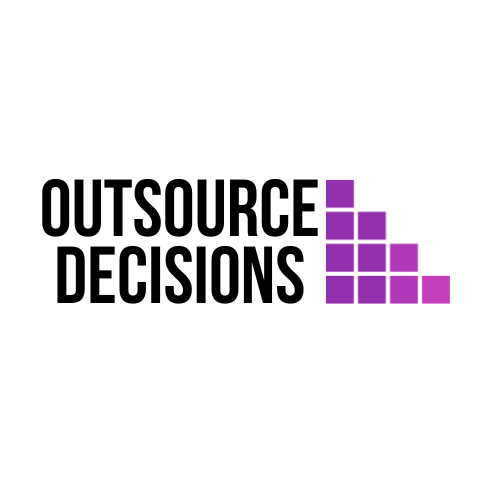Ever felt like your brain turns to mush after a long day of making choices?
As an entrepreneur who’s worn many hats over the years, I’ve experienced this phenomenon firsthand.
It’s called decision fatigue, and it’s a real thing that can impact our lives in ways we might not even realize.
In this post, I’ll cover decision fatigue and share some hard-earned wisdom on how to make better choices when you’re feeling overwhelmed.
Imagine – you’ve just spent hours deciding on the perfect color scheme for your new website, choosing between countless shades of blue. When your partner asks what you want for dinner, you snap, “I don’t care, you decide!” That, my friends, is decision fatigue in action.
Decision fatigue is the mental exhaustion that results from making too many choices. It’s like a cognitive battery that drains with each decision, big or small. As the day wears on, our ability to make well-reasoned choices diminishes, leading to poorer decisions or decision avoidance altogether.
The Science Behind Decision Fatigue
Let’s get a bit nerdy for a moment. Decision fatigue isn’t just a catchy phrase; it’s backed by science.
Studies have shown that our brains have a finite amount of mental energy for decision-making. As we deplete this energy, the quality of our decisions deteriorates.
One famous study published in the Proceedings of the National Academy of Sciences found that judges were more likely to grant parole to prisoners early in the day or after a food break. Why? Because decision fatigue hadn’t set in yet. The judges’ mental resources were fresher, allowing for more thoughtful consideration of each case.
Signs You’re Experiencing Decision Fatigue
How do you know if you’re in the throes of decision fatigue? Here are some telltale signs:
- Procrastination on important decisions
- Impulsive choices (especially later in the day)
- Avoiding decisions altogether
- Feeling mentally drained or overwhelmed
- Increased irritability when faced with choices
- Difficulty concentrating on decision-related tasks
If you’re nodding along to these, don’t worry. Awareness is the first step to overcoming decision fatigue.
The Impact of Decision Fatigue on Daily Life
Decision fatigue doesn’t just affect big, life-altering choices. It seeps into every aspect of our daily lives. From what to wear in the morning to which Netflix show to watch at night, these seemingly small decisions add up.
In my own life, I’ve noticed how decision fatigue can lead to poor food choices (hello, late-night junk food binges), impulse purchases, and even strained relationships. It’s like a snowball effect – one poor decision can lead to another, creating a cycle that’s hard to break.
Decision Fatigue in the Workplace
As a digital marketer and entrepreneur, I’ve seen firsthand how decision fatigue can wreak havoc in the workplace. Important business decisions made at the end of a long day are often subpar. Creativity suffers, and team morale can take a hit when leaders are constantly overwhelmed by choices.
To illustrate this, let’s look at a comparison of decision-making quality throughout a typical workday:
| Time of Day | Decision Quality | Mental Energy | Typical Decisions Made |
|---|---|---|---|
| 9 AM – 11 AM | High | Fresh | Strategic planning, critical problem-solving |
| 11 AM – 1 PM | Moderate to High | Slightly tired | Team meetings, project prioritization |
| 1 PM – 3 PM | Moderate | Post-lunch dip | Routine tasks, email responses |
| 3 PM – 5 PM | Low to Moderate | Fatigued | Less critical choices, administrative work |
| 5 PM – 7 PM | Low | Exhausted | Personal errands, social decisions |
This table shows why it’s crucial to structure your workday around your decision-making capacity. Schedule your most important decisions for when your mental energy is at its peak.
Strategies to Combat Decision Fatigue
Now that we understand the problem, let’s talk solutions. Here are some strategies I’ve developed over the years to fight decision fatigue:
- Simplify your wardrobe: Ever wonder why Steve Jobs or Mark Zuckerberg always wore the same outfit? It eliminated one daily decision.
- Meal prep: Plan your meals in advance to avoid the “what’s for dinner” dilemma.
- Use the 2-minute rule: If a task takes less than 2 minutes, do it immediately instead of deciding when to do it later.
- Limit your options: When faced with too many choices, narrow them down to 2-3 options.
- Make important decisions early: Tackle critical choices when your mind is fresh.
- Delegate decisions: Share the decision-making load with trusted team members or family.
Remember, the goal isn’t to eliminate decisions but to make the decision-making process more efficient and less draining.
The Power of Routines and Habits
One of the most effective weapons against decision fatigue is developing strong routines and habits. By automating certain decisions, you free up mental energy for more important choices.
I’ve found that creating a morning routine has been a game-changer. My routine includes meditation, exercise, and a healthy breakfast. This structure eliminates a slew of small decisions and sets a positive tone for the day.
Consider which areas of your life could benefit from more routine. It might feel restrictive at first, but the mental freedom it provides is worth it.
Prioritizing Decisions: The Eisenhower Matrix
Not all decisions are created equal. Learning to prioritize is crucial in combating decision fatigue. Enter the Eisenhower Matrix, a tool I swear by for decision prioritization.
Here’s how it works:
- Urgent and Important: Do these tasks immediately.
- Important but Not Urgent: Schedule these for later.
- Urgent but Not Important: Delegate these if possible.
- Neither Urgent nor Important: Eliminate these tasks.
Eisenhower Matrix
Do First
Schedule
Delegate
Don’t Do
By categorizing decisions this way, you can focus your energy on what truly matters and reduce the overall number of decisions you need to make.
Leveraging Technology to Reduce Decision Fatigue
In our digital age, technology can be both a blessing and a curse when it comes to decision fatigue. On one hand, we’re bombarded with more choices than ever. On the other, tech tools can help streamline our decision-making processes.
Some tech solutions I’ve found helpful:
- Calendar apps for scheduling decisions
- Task management tools for prioritization
- AI-powered assistants for routine decisions
- Decision-making apps that use algorithms to help you choose
The key is to use technology intentionally, as a tool to reduce cognitive load rather than add to it.
The Role of Self-Care in Decision-Making
You can’t pour from an empty cup, and you can’t make good decisions with a frazzled mind. Self-care isn’t just a buzzword; it’s essential for maintaining decision-making capacity.
Regular exercise, adequate sleep, and proper nutrition are foundational. But don’t forget about mental self-care too. Meditation, journaling, and hobbies that allow your mind to rest are all valuable tools in your decision-making arsenal.
Decision Fatigue and Relationships
Decision fatigue doesn’t just affect us individually; it can strain our relationships too. How many times have you and your partner gotten into an argument over where to eat dinner, especially after a long day?
Communication is key here. Set up systems with your loved ones to share the decision-making load. Maybe alternate who chooses dinner each night, or have a list of go-to options for date nights.
Overcoming Analysis Paralysis
Sometimes, decision fatigue manifests as analysis paralysis – the inability to make a choice due to overthinking. I’ve been there, endlessly weighing the pros and cons until I’m mentally exhausted.
To overcome this:
- Set decision deadlines for yourself
- Use the “satisficing” approach: Choose the first option that meets your criteria
- Remember that perfect is the enemy of good
- For big decisions, consider the reversibility – is this choice easily undone if needed?
When to Seek Professional Help?
While decision fatigue is a normal part of life, sometimes it can be a symptom of larger issues like anxiety or depression. If you find that decision-making is consistently overwhelming or impacting your quality of life, don’t hesitate to seek professional help.
A therapist or coach can provide strategies tailored to your specific situation and help you develop healthier decision-making patterns.
The Future of Decision-Making: AI and Beyond
As we look to the future, artificial intelligence is poised to revolutionize how we make decisions. From AI assistants that can predict our preferences to algorithms that can optimize complex choices, technology will continue to shape our decision-making landscape.
However, it’s crucial to maintain a balance. While AI can help with routine decisions, human judgment will always be necessary for choices that involve ethics, emotions, and nuanced understanding.
Putting It All Together: Your Action Plan
Now that we’ve explored decision fatigue from all angles, let’s create an action plan to help you make better choices when overwhelmed:
- Identify your high-energy times and schedule important decisions accordingly
- Create routines for daily tasks to reduce decision load
- Use the Eisenhower Matrix to prioritize decisions
- Implement technology tools to assist with decision-making
- Practice regular self-care to maintain mental clarity
- Communicate with loved ones about sharing decision responsibilities
- Set decision deadlines to avoid analysis paralysis
- Regularly reassess and adjust your strategies
Remember, overcoming decision fatigue is a journey, not a destination. Be patient with yourself as you implement these changes.
TL;DR
Decision fatigue is the mental exhaustion that results from making too many choices. It can lead to poor decision-making, procrastination, and stress.
To combat it, prioritize decisions, create routines, leverage technology, practice self-care, and don’t be afraid to delegate or postpone less critical choices.
By understanding decision fatigue and implementing strategies to manage it, you can make better choices and reduce overwhelm in both your personal and professional life.
Q&A
Q1: Is decision fatigue the same as burnout?
A1: While related, they’re not the same. Decision fatigue specifically relates to the mental exhaustion from making choices, while burnout is a more general state of physical, emotional, and mental exhaustion from prolonged stress.
Q2: Can decision fatigue affect physical health?
A2: Yes, indirectly. Decision fatigue can lead to poor food choices, skipping exercise, and inadequate sleep, all of which can impact physical health.
Q3: How long does it take to recover from decision fatigue?
A3: Recovery time varies, but generally, a good night’s sleep can significantly restore decision-making abilities. Longer-term strategies like reducing overall decision load are key to preventing chronic decision fatigue.
Q4: Are some people more prone to decision fatigue than others?
A4: Yes, factors like personality type, stress levels, and overall mental health can influence susceptibility to decision fatigue. However, everyone experiences it to some degree.
Q5: Can decision fatigue be completely eliminated?
A5: While it’s not possible to completely eliminate decision fatigue, it can be significantly reduced and managed through the strategies discussed in this post.
Decision Fatigue Quiz:
Answer these questions to assess your vulnerability to decision fatigue:
- Do you often feel overwhelmed when faced with multiple choices?
a) Yes
b) No - Do you find yourself procrastinating on important decisions?
a) Yes
b) No - Are you more likely to make impulsive decisions later in the day?
a) Yes
b) No - Do you have established routines for daily tasks like meal planning or outfit selection?
a) No
b) Yes - Do you regularly prioritize your decisions based on importance and urgency?
a) No
b) Yes
Scoring:
Give yourself 1 point for each ‘a’ answer and 0 points for each ‘b’ answer.
0-1 points: You’re managing decision fatigue well! Keep up the good work and continue refining your strategies.
2-3 points: You’re experiencing some decision fatigue. Try implementing a few of the strategies discussed in this post to reduce its impact.
4-5 points: Decision fatigue is significantly affecting your life. Consider making some major changes to your decision-making processes and daily routines.
Remember, this quiz is just a starting point. The key is to be aware of decision fatigue and actively work on strategies to manage it. With practice and patience, you can improve your decision-making capacity and reduce overwhelm in your daily life.





